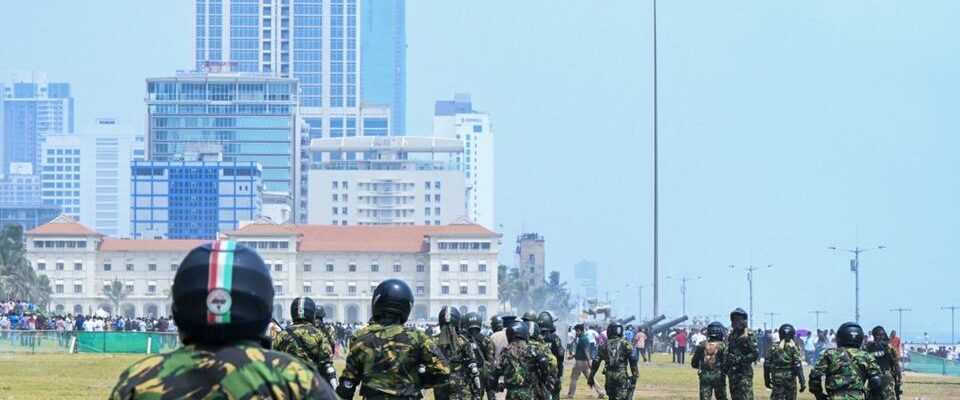For several weeks, Sri Lanka has been experiencing a great wave of violence. Large demonstrations were organized to demand the resignation of the government, which led to serious clashes with the police and between pro and anti-government demonstrators. In question: the economic crisis that strikes the island.
What is the economic situation in Sri Lanka?
Sri Lanka has been going through its worst economic crisis for several months since its independence in 1948. In April, the country declared itself in default of payment on all of its external debt of 51 billion dollars. An economic crisis linked to the Covid-19 pandemic, since the country was deprived for many months of tourists, important for its economy, but which also result from bad political decisions.
The Central Bank of Sri Lanka has asked its diaspora who live abroad to send money to the country, which has run out of foreign currency to import basic necessities. The country has suffered severe power cuts and shortages of food, fuel and pharmaceuticals for weeks. Millions of inhabitants thus found themselves in misery.
Government held responsible
Since the worsening economic situation, many Sri Lankans have taken to the streets to demand the resignation of the government and the departure of President Gotabaya Rajapaksa and his brother Mahinda Rajapaksa, the Prime Minister, whom they hold responsible for this serious economic crisis.
Protesters notably attempted to invade the presidential residence at the end of March, causing at least one serious injury and leading to the imposition of a curfew in the capital Colombo. They also prevented the opening of a flower exhibition by the wife of Prime Minister Mahinda Rajapaksa, but also blocked certain roads or set fire to cars.
The executive has therefore declared a state of emergency twice in five weeks, giving the police greater means and powers to arrest or imprison protesters.
Escalation of violence and resignation of the Prime Minister
On April 19, a man was killed by the police and 24 people were injured when a highway was blocked in Rambukkana, in central Sri Lanka.
After several weeks of demonstrations, the tension has risen again a notch in recent days. This Monday, May 9, violent clashes took place between pro and anti-government demonstrators, while a curfew and the state of emergency were still in force.
The authorities indicated in the evening that these clashes left 180 injured and five dead. In Nittambuwa, about 50 kilometers north of the capital, a ruling party MP, Amarakeerthi Athukorala, killed himself after opening fire on two anti-government protesters who were blocking his car, police said.
Shots were also fired yesterday from the Prime Minister’s residence after protesters broke down the entrance gate and set fire to a lorry parked there. Mahinda Rajapaksa finally announced her resignation on Monday night after the clashes. “I am resigning with immediate effect so that you can appoint a multiparty government to lead the country out of the current economic crisis,” he said in a letter. He was exfiltrated from his residence, surrounded by demonstrations, and taken to a safe place by the army.
The tension still does not seem to subside despite this resignation. This Tuesday, the day after the deadly demonstrations, the Ministry of Defense of Sri Lanka ordered its troops to shoot on sight those involved in looting or violence. “Security forces have been ordered to shoot on sight anyone who will loot public property or attempt the life of others,” the ministry said, as looting and degradation notably took place in the hometown. of the Rajapaksa brothers. Demonstrators also continue to block certain roads and in particular those leading to Colombo airport to ensure that members of the government do not try to flee the island.
UN reaction
The UN on Tuesday denounced the escalation of violence in Sri Lanka and asked the authorities to prevent further violence and to start a dialogue with the population. “I am deeply disturbed by the escalation of violence in Sri Lanka after supporters of the Prime Minister attacked peaceful protesters in Colombo on May 9 as well as attacks on members of the ruling party by mobs,” said High Commissioner Michelle Bachelet in a statement.
“I condemn all violence and call on the authorities to carry out an independent, detailed and transparent investigation into each incident. It is crucial that those who are responsible, including those who incite or organize the violence, are held to account,” said the former president of Chile.

